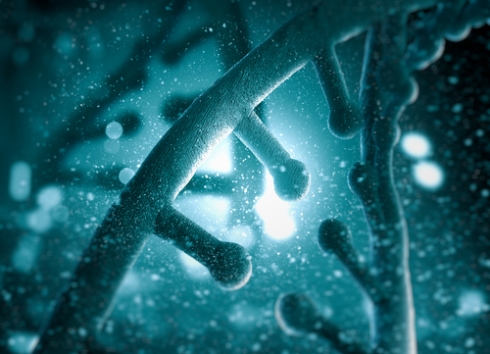Let’s make it clear…

To avoid the problems encountered with GM food, scientists need to define ‘synthetic biology’ clearly and quickly and ensure it is properly regulated, writes Dr Kerstin Elbing
The Biologist 62(1) p9
Synthetic biology is one of the most exciting and rapidly evolving fields of the biosciences. It is moving so quickly, in fact, that its exact definition has yet to be decided.
Others, however, have started to define it for us. This summer, an alliance of German organisations opposing animal research as well as gene technology informed ministers, politicians and the public that so-called synthetic gene technology would be bad news for laboratory animals. According to the alliance, existing gene technology research “generally may have negative consequences for the animal” and has led to an increasing number of laboratory animals used in research. It also said that synthetic gene technology would enforce and accelerate the use of animals even further.
The group demanded a fundamental review of ethical guidelines, claiming that the genetic identity and integrity of animals is compromised by the new technology of synthetic biology.
The European Commission has also initiated a discussion on synthetic biology to establish the EU’s position in this complex field of research and its possible applications. In June, three different scientific committees launched their own first preliminary opinion on synthetic biology, or synbio. According to their report: “Synbio is the application of science, technology and engineering to facilitate and accelerate the design, manufacture and/or modification of genetic materials in living organisms to alter living or non-living materials.”
The German Life Sciences Association (VBIO) has since pointed out that this definition is too broad and lacks discrete, scientific criteria to distinguish synthetic biology from conventional gene technologies, or even plant breeding. Under this definition, some research activities might be mislabelled as synthetic biology, although they are already well regulated by EU or national legislations. VBIO suggests the definition could be improved by greater dialogue with academic and industrial researchers. It should focus on the construction of completely new pathways using multiple genes from different species or de novo synthesis of living entities. In case emerging genetic tools challenge the existing regulations of gene technology, the latter ones might be adapted within a separate rationale.
However, reading the EU definition twice, one doubts whether it is possible to find a suitable description. On the one hand, there is a strong need for a practicable and accurate definition; on the other, synthetic biology is evolving extremely quickly and, therefore, any kind of definition has to remain preliminary. Synthetic biology may influence medicine, agriculture, renewable energy, economy and other fields, hence requires a sensible discussion with various stakeholders, including economists and citizens.
This debate must be driven by biologists. Scientists as well as citizens should avoid running into a similar dead end as we have done in Germany with GM plant technologies. But how can we ensure a fair dispute on this complex and fast evolving issue in a way that is suitable for both scientists and the broader public?
The public is already struggling to gain a good understanding around biology. The situation is not expected to improve, at least in Germany, since biology has been dramatically diminished throughout schools’ curricula. If modern biosciences require critical observation, a comprehensive education is a key element in this process.
Working on a smart definition will be a process rather than a decision and it may take more time than we might expect. But time to deliver an operable definition is running out. Risk assessment methodologies, safety measurements and subsequent regulations are already on their way. They will be addressed in a second consultation recently announced by the EU Commission. If defining synthetic biology is already challenging, the discussion around regulation will become even more problematic – especially if inaccurate or out-of-date definitions of synthetic biology are all we have.
Dr Kerstin Elbing is head of science and society at the German Life Sciences Association (VBIO).


